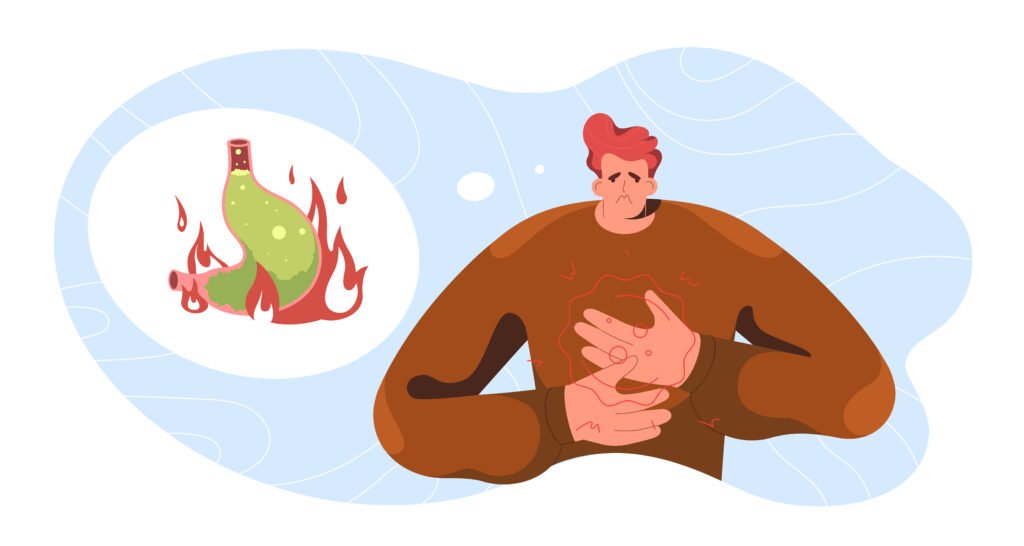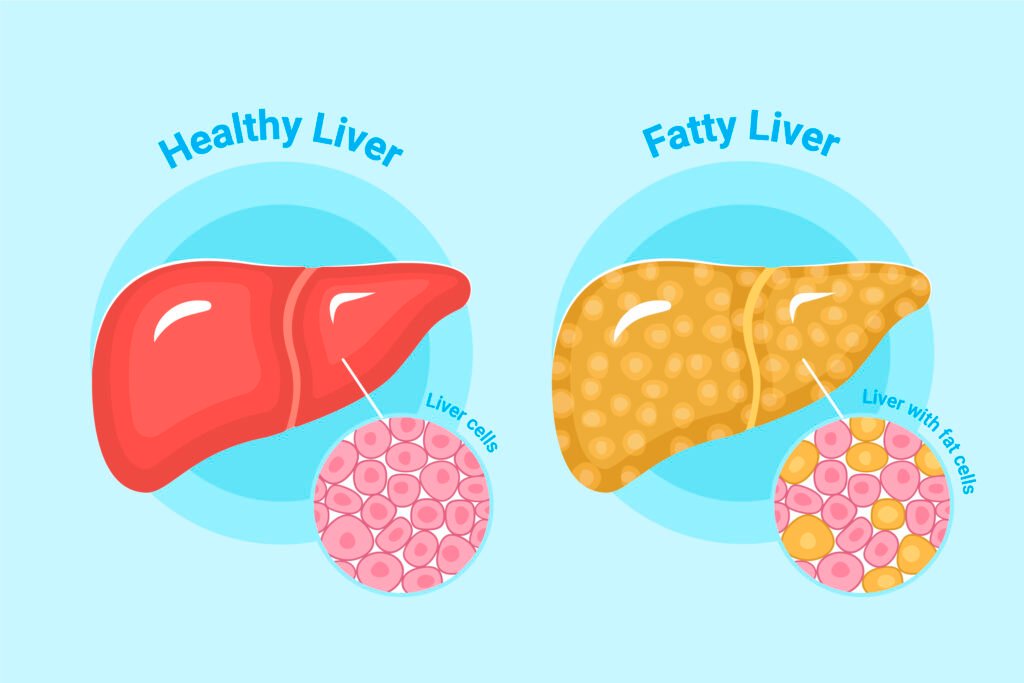
Millions of people in the U.S. experience acid reflux or heartburn at some point in their lives. While occasional discomfort may not be a major concern, frequent episodes can indicate gastroesophageal reflux disease (GERD)—a chronic condition that affects up to 20% of adults.
Understanding the most common GERD symptoms, why they happen, and how to manage them is essential for protecting both your digestive and overall health.
What Is GERD?
GERD (Gastroesophageal Reflux Disease) occurs when the lower esophageal sphincter (LES)—the valve between the stomach and esophagus—weakens or relaxes inappropriately. This allows stomach acid to flow back into the esophagus, causing irritation and inflammation.
Key risk factors include:
Being overweight or obese.
Eating trigger foods (chocolate, caffeine, alcohol).
Eating too quickly or late at night.
Anatomical issues such as hiatal hernia.
Common Acid Reflux Symptoms
1. Heartburn (The Classic Symptom)
Burning sensation in the chest, often behind the sternum.
Typically worse after meals, when lying down, or at night.
Improves when sitting upright or taking antacids.
2. Acid Reflux & Regurgitation
Sour or bitter taste in the mouth.
Food or liquid coming back up into the throat.
Can contribute to bad breath and poor dental health.
3. Chronic Cough and Hoarseness
Acid reflux can irritate the throat and vocal cords.
Nighttime coughing is common.
Hoarseness or difficulty speaking may develop over time.
4. Dental Issues
Increased risk of gum recession, tooth erosion, and chronic periodontitis.
Acid exposure weakens enamel and damages oral health.
5. Other GERD Symptoms
Nausea and bloating.
Excessive salivation or dry mouth.
Epigastric pain (pain in the upper abdomen).
Dysphagia (difficulty swallowing).
Odynophagia (painful swallowing).
If GERD is left untreated, it may increase the risk of esophageal cancer.
The Cleveland Clinic notes that heartburn, regurgitation, and chronic cough are among the most common GERD symptoms.
What Makes GERD Worse?
Certain lifestyle habits and foods can trigger or worsen acid reflux and heartburn:
Eating late at night before lying down.
Consuming fatty, spicy, or acidic foods.
Drinking carbonated beverages, coffee, or alcohol.
Eating large or fast meals.
Managing GERD Symptoms
Simple lifestyle changes can GERD and heartburn:
-
Eat smaller, slower meals.
-
Avoid lying down immediately after eating.
-
Elevate the head of your bed.
-
Limit alcohol, caffeine, and trigger foods.
-
Maintain a healthy weight.
For persistent GERD symptoms, medical evaluation is important. Doctors may recommend medications such as proton pump inhibitors (PPIs) or, in severe cases, surgery.
Conclusion
Acid reflux, heartburn, and GERD symptoms are common but shouldn’t be ignored. While occasional heartburn can happen to anyone, chronic reflux can damage the esophagus, teeth, and overall health.
By recognizing triggers, making dietary adjustments, and seeking medical advice when needed, you can manage GERD effectively and protect your digestive system for the long term.
Pravin is a tech enthusiast and Salesforce developer with deep expertise in AI, mobile gadgets, coding, and automotive technology. At Thoughtsverser, he shares practical insights and research-driven content on the latest tech and innovations shaping our world.
- Pravin Rhttps://thoughtsverse.com/author/pravin321/
- Pravin Rhttps://thoughtsverse.com/author/pravin321/
- Pravin Rhttps://thoughtsverse.com/author/pravin321/
- Pravin Rhttps://thoughtsverse.com/author/pravin321/



